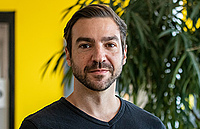Mechanistic spatially-explicit eco-evolutionary biodiversity modelling
|
Content
Pioneer naturalists such as Whewell, Lyell, Humboldt, Darwin and Wallace acknowledged the interactions between ecological and evolutionary forces, as well as the roles of continental movement, mountain formation and climate variations, in shaping biodiversity patterns. Studies show that linking these processes is necessary to reproduce multiple large-scale biodiversity patterns simultaneously. Recent developments in computer modelling and paleo-environmental reconstruction make it possible to study in silico how biodiversity emerges from eco-evolutionary and environmental dynamic processes and their interactions. This course aims to develop skills required to simulate emergent biodiversity using gen3sis engine, consequently enabling you to design experiments and analyze multiple interconnected hypotheses existing in a largely fragmented scientific landscape.
Competencies gained:
- create new landscapes and eco-evolutionary rules
- conduct simulation experiments (full modeling cycle) and reflect about emergent patterns
- gain knowledge on how to apply and how not to apply such tools, as well as be familiar with its limitations and potentials
Prior knowledge:
- Good programming, data-manipulation (e.g. list and raster) and data-visualization skills in R.
- Good English communication skills.
- Additionally, you will have to read three papers and go though one tutorial before coming to the course (these will be sent to you after the registration)
Find here the syllabus with all information on the course including reading material.
Lecturers

... did his PhD in Applied Mathematics and is a postdoc in the ‘Theory in Biodiversity’ group. He has several years of experience in ecological modeling as well as math and stats consultation.
... is experienced with gen3sis and machine learning methods.


